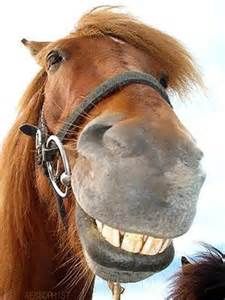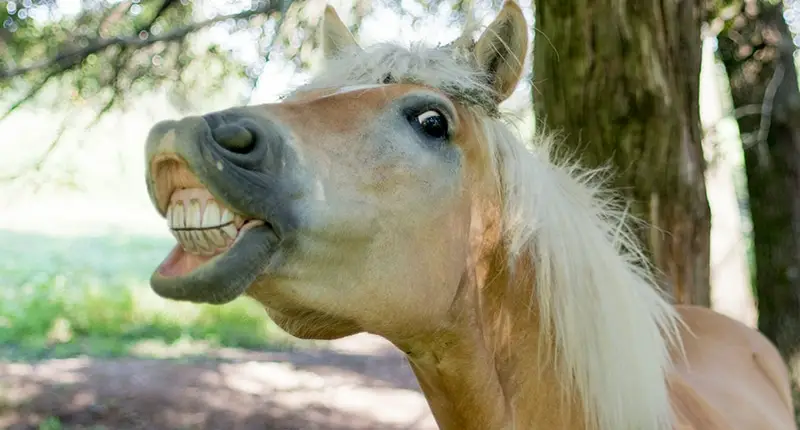How Much Does Horse Teeth Floating Cost?
Last Updated on April 9, 2024
Written by CPA Alec Pow | Content Reviewed by ![]() CFA Alexander Popinker
CFA Alexander Popinker
As herbivores, horses’ teeth are constantly erupting and undergoing wear. This can lead to sharp enamel points and uneven edges forming over time. Teeth floating, also called dental equilibration, is the process of filing down these sharp edges to ensure the horse’s mouth stays healthy and comfortable. But how much does this important dental procedure typically cost?
In this article, we’ll break down the factors that influence teeth floating costs, from your location to the complexity of your horse’s needs. You’ll find detailed price ranges for basic to complex treatments and different pricing models used.
We’ll go over exactly what’s involved in the floating procedure itself, and outline the long-term oral health benefits of regular dental maintenance. You’ll also find tips for choosing a highly qualified equine dental specialist and budgeting sensibly so you can confidently plan and provide this vital dimension of ongoing care for your horse’s unique smile and well-being.
How Much Does Horse Teeth Floating Cost?
The average cost for horse teeth floating typically ranges from $100 to $300 per horse.
While pricing can vary quite a bit based on your location and individual dentist, here are some general guidelines on average teeth floating costs:
- For basic floating and minor reshaping, costs often range from $100 – $300 per session
- For comprehensive care like oral exams, sedation, x-rays, and complex dental work, costs may reach $300 – $1,000+ per session
The pricing model the equine dental professional uses can also cause cost variability:
- Many charge a straightforward flat rate per session, regardless of time needed.
- Others bill an hourly rate for their services – often $75 – $200 per hour.
- Some offer packaged annual plans covering a certain number of visits – plans often range from $500 – $2,000+.
Finally, additional fees may apply for factors like:
- Travel to farms or stables located farther away – often a trip fee of $50 – $150
- Administering sedation or anesthetic medications – $50 – $250
- Performing extensive oral exams, full mouth x-rays, or advanced diagnostics
Faith N Friends writes that the cost they pay for horse teeth floating is reported to be $95 per farm call, totaling $3,770 over a specified period, which includes teeth floating, Coggins, shots, and a wellness check.
Heart of Phoenix owner says that the cost of teeth floating for horses can range between $20 and $200 depending on factors such as location, tools used, sedation requirements, and other variables.
Horse Forum users note that teeth floating for horses can cost anywhere from $75 to $250, with additional charges for farm calls, sedation, power float or manual procedures, and any extra extensive dental work required.
Why Do Horses Need Their Teeth Floated?
Equine teeth floating and reduction procedures become necessary primarily because of the way horses’ teeth continuously erupt from their gums throughout life as the grinding action of chewing gradually wears them down over time. This eruption pattern can cause sharp enamel points, hooks, and uneven chewing surfaces to form along the outer edges of the molars and premolars. These jagged areas can:
- Cut, scratch, and irritate the sensitive cheeks and gums
- Make it difficult and painful for the horse to properly chew and grind down their feed
- Lead to improperly digested food, intestinal issues, and poor nutrition
- Cause undesirable behavioral issues like head tossing or resisting the bit that can disrupt handling and training
Teeth floating gently files down and smoothes these rough points and uneven edges to establish a more uniform grinding surface across the mouth. This allows horses to comfortably and efficiently eat their hay, grain, and grasses to thrive and stay healthy.
Factors Affecting the Cost of Teeth Floating
Several variables influence the overall cost to get a horse’s teeth professionally floated:
- The extent of enamel pointing present and any malocclusions along the molars
- The overall health condition of the mouth – the presence of periodontal disease increases difficulty and care requirements
- The age of the horse – foals and younger horses often require sedation and may need more extensive shaping of newly erupting teeth
- The number of teeth that require attention during the floating session
- Where the service takes place – on-site farm or stable calls cost more than clinical visits in some cases
- The amount of experience the attending veterinarian or professional equine dentist has
- Whether sedation or anesthetic protocols are utilized during the procedure for safety and compliance
Naturally, more extensive dental work and complicated logistical factors increase the overall price.
What Does the Teeth Floating Procedure Involve?
The equine teeth floating and reduction procedure is most often performed by a licensed equine veterinarian or specialized horse dentistry technician called an Equine Dental Practitioner (EDP). The general process includes:
- Administering sedation or light anesthesia to the horse for safety and compliance if needed. This is very common.
- Inserting a speculum device to gently open the mouth wide and allow access.
- Using specialized float files, rasps, and motorized grinding tools to methodically smooth, round, and gently flatten any sharp enamel points and uneven biting surfaces present along the molars and premolars.
- Removing any loose or damaged teeth as needed.
- Thoroughly flushing the mouth to remove all debris and carefully monitoring the horse for proper recovery from sedation.
The full procedure timing ranges anywhere from 30 minutes for a basic quick float on a compliant horse up to 2 hours or more for a thorough exam and extensive reshaping on high-need cases. Most horses tolerate the process very well thanks to effective oral sedation protocols.
You might also like our articles about the cost of a horse, a pony, or the price of renting a horse and carriage.
The Lifelong Benefits of Regular Dental Care
Beyond evaluating teeth floating session costs alone, it’s also incredibly helpful assess the value of consistent preventive dental maintenance from a holistic equine health perspective:
- Helps avoid expensive and complex dental interventions in the future if relatively small problems are allowed to escalate into severe oral health issues.
- Enables proper and efficient chewing, digestion of hay and feed, and nutrient absorption.
- Alleviates oral discomfort, pain, and associated negative behaviors.
- Allows comfortable bit use that is critical for proper riding, training, and handling.
- Promotes a happier state of well-being and an optimal quality of life.
Getting teeth routinely evaluated and floated approximately every 6-12 months where indicated provides major payoffs for your horse’s health, performance, and contentment over their lifespan.
Choosing a Qualified Equine Dentist
 Seeking out a genuinely experienced and dedicated veterinarian or a specialized certified Equine Dental Technician/Practitioner (EDP) is certainly key for providing excellent routine dental care for your horse. Be sure to:
Seeking out a genuinely experienced and dedicated veterinarian or a specialized certified Equine Dental Technician/Practitioner (EDP) is certainly key for providing excellent routine dental care for your horse. Be sure to:
- Ask about the provider’s extensive training pathway and qualifications specifically in the realm of equine dentistry. Request to see certifications.
- Get referrals from trusted horse owners and ask detailed questions about the provider’s skills and service style.
- Request the practitioner fully explain their dental examination findings and detailed floating treatment plans including all costs in advance, so no surprises occur down the road. Transparency is vital.
- Ask if they offer multiple horse or bundled annual package pricing options to help sensibly budget for routine preventive care. These plans often provide great value.
With a qualified professional and sensible budget, your horse’s smile will sparkle brightly for years to come.
Final Words
While floating costs can range widely based on your horse’s needs and your location, this essential dental care typically averages $100-$500 per session. By partnering with an experienced equine dental provider, budgeting sensibly, and prioritizing prevention, you can feel confident your horse’s unique smile will be comfortably maintained for a lifetime.
Frequently Asked Questions
How often should horses teeth be floated?
Most horses need routine dental floating approximately every 6 to 12 months. More frequent dental exams are important in senior horses or if health issues are present. Your veterinarian will advise the ideal schedule.
How do wild horses get their teeth floated?
Wild horses naturally wear their teeth by grazing on fibrous grass and chewing on rough textured brush and plant materials for many hours per day. However, domestic horses fed processed hays and concentrated grains do not experience the same natural wearing action. So, their teeth tend to overgrow, necessitating mechanical floating and reduction for comfort.
What happens if you don’t get your horses teeth floated?
Lack of floating can allow sharp points to become severe, causing mouth pain, difficulty eating, weight loss, and behavior problems. Severe dental disease is painful and expensive to treat, so preventive floating is crucial.


Leave a Reply
Want to join the discussion?Feel free to contribute!